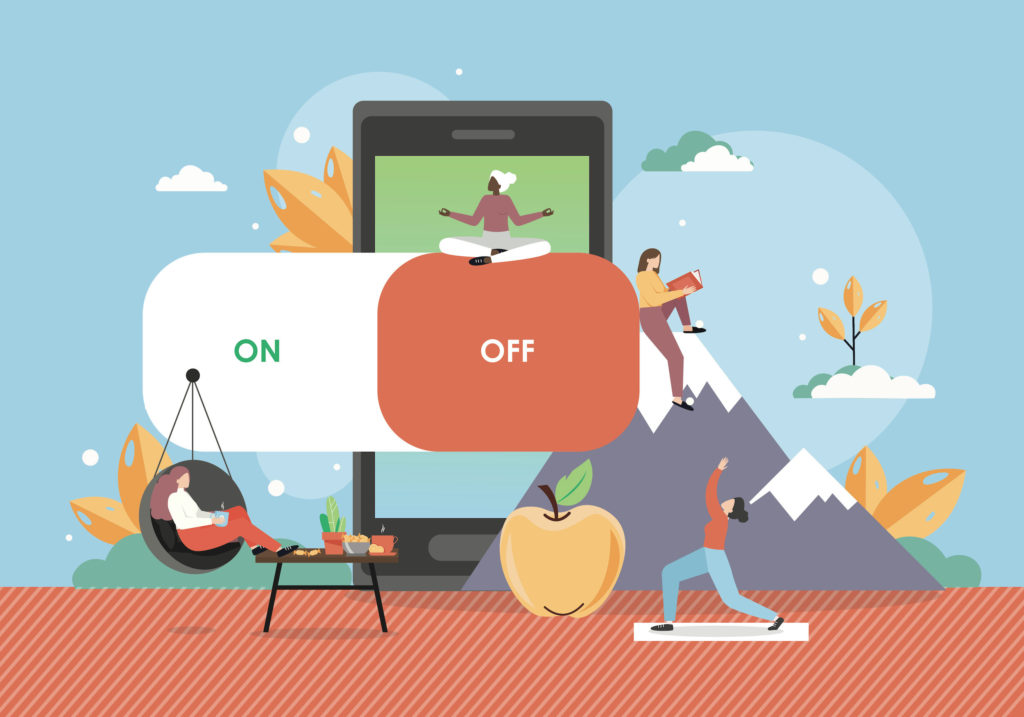Avoiding the Pitfalls of Social Media
Strategies to Kick the Habit
Whether ambitious and long-term or with immediate effect, a digital detox of social media platforms could well be one of the soundest approaches to your mental health. A recent study by the Center for Research on media, Technology and Health from the University of Pittsburgh poignantly notes that the use of multiple social media outlets, especially among those active on 7 to 11 platforms, could very well lead to increased risk of depression and anxiety.
The break up does not need to be radical. Nothing should stop users from continuing moderate social banter and important connections with friends, family and business partners. However, in recent years, a major shift in New Year’s resolutions has been amply reported in different media outlets. As you can probably imagine, the old ‘quitting cigarettes and losing weight’ paradigm has surrendered its lead to hopping off the social media bandwagon.
From a medical standpoint, the benefits could prove a boon. As famously reported by Dr. Richard Needle, a psychologist at the Center for Marital and Sexual Health of South Florida, “Many confuse digital intimacy with true intimacy. It has been estimated that Facebook activities contribute to at least 20% of divorce cases.”
Dr. Bernie Hogan’s OII research digs into media multiplexity. This theory was developed way back in 2005, before the bumper crop of online social networking outlets led by Facebook started taking over email, online chat and phone conversations as the principal mediums of communication. It suggested that more media channels to communicate with one other and their heightened frequency of use would lead to stronger relationships. The E-harmony-funded research data collected since 2008 from 24,000 people in heterosexual married couples in 17 European countries has revealed what we have long been suspecting: Internet overuse is getting in the way of healthy, “normal” relationships, adding no satisfaction to existing ones in the best of cases and seriously undermining, if not completely obliterating, incipient and long-standing bonds.
So, here are 10 simple strategies to start deescalating this hostile habit.
- Delete social media accounts that you do not use. Self-explanatory.
- Be mindful —measure even— the time spent on social. This is especially recommended for parents, who should be actively overseeing and monitoring their kids’ (especially teens) access to online content and the time spent on social networking. Interesting strategies include no phone use on the dinner table and after, when in bed, or no social media networking until kids start high school.
- Turn off push notifications. Mute trigger-happy apps. This helps reduce distractions and enhances your focus when working, studying, even when hanging out with actual flesh and bone friends.
- Revisit your trust threshold. ‘Knowing’ people on social media is often a bad yardstick to leverage true trust and is one of the most common mistakes we all make. Increase trust prerequisites to avoid security issues and tone down excess social activity with people you don’t really know.
- Stop feeding the trolls. Engage with care, be mindful of negative influencers and stress triggers… in general anything that may upset your psyche.
- Purge Friends & Follow lists. This is the equivalent to doing some thorough house cleaning from time to time. You want to get rid of what might be dead, is not working any longer or is not bringing positive values and other stuff to your life.
- Implement actual physical distance between you and your devices, especially in sacred places like the bedroom, with a no digital or electronic device policy to enhance sleep. In cars, where safety is a big issue, some people might go as far as leaving the phone in the trunk.
- Extreme Digital Detox: consider it. Half a month, or better even, a full 30 days. Set the deadline first and then let everybody know that you are ‘switching off’ so they may be mindful of your new status and efforts.
Sources:
https://www.readersdigest.ca/health/healthy-living/social-media-addiction/
https://www.medicaldaily.com/too-much-social-media-overuse-can-damage-romantic-relationships-244968
https://www.itbusinessedge.com/articles/social-media-pitfalls-and-how-to-avoid-them.html
https://www.womensderm.org/UserFiles/file/AvoidingthePitfallsofSocialMedia.pdf


